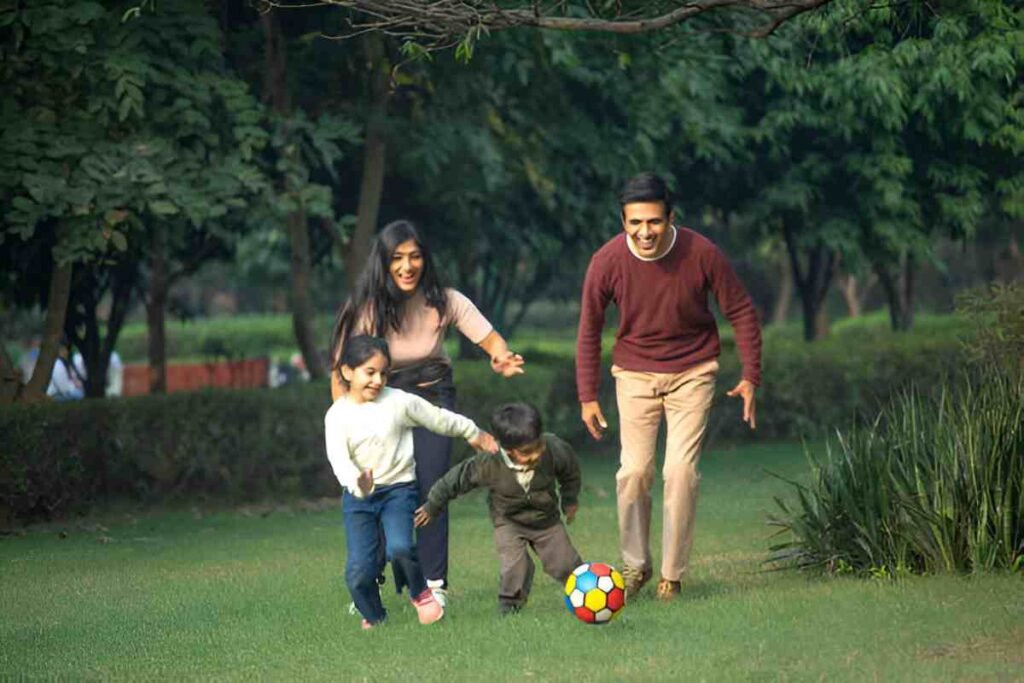It’s hard to scroll through Instagram or TikTok without seeing a post of a smiling child dressed in designer clothes, a mom holding green juice, or a family vacationing in the Maldives. It looks perfect—but is it real?
Parenting today is more public than ever. Social media, celebrity influence, and lifestyle blogging have all made being a “good parent” look a certain way. This shift has changed how many moms and dads act—not just at home, but online too.
But here’s the big question: are we raising kids to feel loved and seen, or are we raising them to be liked online?
When Parenting Becomes a Performance
The Problem with Curated Childhoods
Parents used to share baby books. Now, they share “baby brands.” Childhood moments are no longer private—they’re content. From gender reveals to first birthdays, these milestones often come with hashtags and likes.
Kids like Stormi Webster or North West already have public images. And while these children are part of famous families like the Kardashians, more and more everyday parents are doing the same. But curating a perfect life online creates a lot of pressure—not just for the parents, but for the kids too.
The Rise of the Insta-Family
Many families have built entire brands around their kids. Matching outfits, staged photos, and perfectly lit playrooms are now part of parenting culture. It’s easy to feel like your child’s life has to be camera-ready at all times.
But what happens when real life doesn’t match the feed? Tantrums, mess, and chaos are part of raising kids—but those parts often stay off-screen. This can make other parents feel like they’re failing when they’re just being real.
Who Are We Really Doing This For?
Seeking Validation in the Digital Age
Let’s be honest. It feels good to get likes and positive comments. It feels like someone sees your hard work. But when parenting choices are made for online approval, things can get tricky.
Parents might start choosing activities, clothes, or even schools based on what looks good on social media. That can create a gap between what’s best for the child and what’s best for the feed.
When Kids Become Content
Children are not influencers—but more and more, they’re being treated like them. Their faces, voices, and personal stories are out there for everyone to see. This brings up real concerns around consent and privacy.
Experts like Dr. Sarah Coyne, a professor at Brigham Young University, say oversharing can hurt a child’s sense of safety and self. And once something is online, it’s often there forever.
How This Culture Affects Real Parenting
Pressure to Perform, Not to Connect
Social media parenting is often about showing effort, not feeling connection. A parent might set up a Pinterest-perfect craft, snap a picture, and never finish the activity. The goal becomes the photo, not the fun.
This kind of performance can lead to burnout, especially for moms. A 2023 report from the Pew Research Center showed that over 60% of moms felt pressure to be “perfect” online—even when they were struggling offline.
Comparison Kills Confidence
When we constantly see other parents doing more, we might feel like we’re doing less. But most of those posts are only the highlights—not the hard days, tears, or tough choices.
Comparing yourself to curated content can hurt confidence. Parents begin to question their instincts or overthink simple things like snacks or screen time. This leads to stress and self-doubt, which affects the entire family.
Solutions: Shifting the Focus Back to Real Life
Make Moments, Not Content
Instead of asking, “How does this look?” ask, “How does this feel?” Kids care more about being seen than being shared. Focus on connection over perfection.
Simple, real moments—like reading a book, making pancakes, or just talking—matter more than any photo shoot. And those are the memories that really stick.
Set Boundaries for Sharing
It’s okay to share parts of your parenting journey. But think about what your child might want later. Try to ask: would I want this photo of me online if I were older?
You can also protect your child’s privacy by sharing without faces, names, or personal details. Apps now allow blurring tools and privacy controls, so take advantage of those.
Unfollow to Feel Better
If certain accounts make you feel less-than, it’s okay to unfollow. Your mental health matters. Follow creators who share honest, helpful, or supportive content instead.
Experts like Dr. Becky Kennedy, known for her “Good Inside” parenting method, focus on emotional connection, not outer appearance. That’s the kind of voice worth following.
Conclusion: Raising Kids, Not Brands
Being a parent today means dealing with pressures our own parents never faced. Social media, influencer culture, and digital parenting trends are loud and flashy—but your child’s real needs are quiet and steady.
At the end of the day, kids won’t remember the matching outfits or the Instagram posts. They’ll remember how you made them feel. Loved. Safe. Seen.
So the next time you go to post that photo, take a moment. Ask yourself, “Am I parenting for the ‘likes’ or for their life?”
Choose the life. Always.

